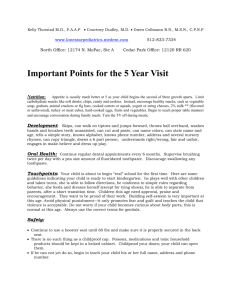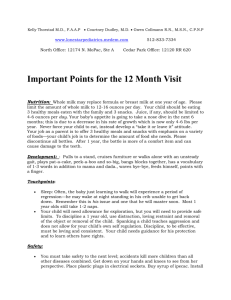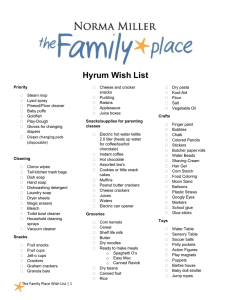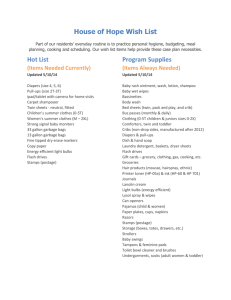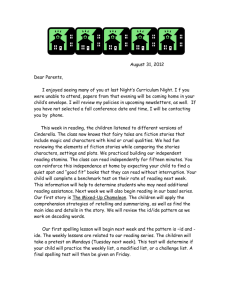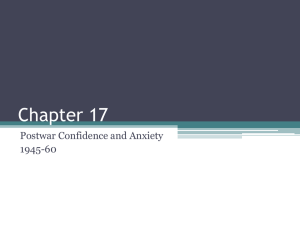Important Points for the 15 Month Visit
advertisement
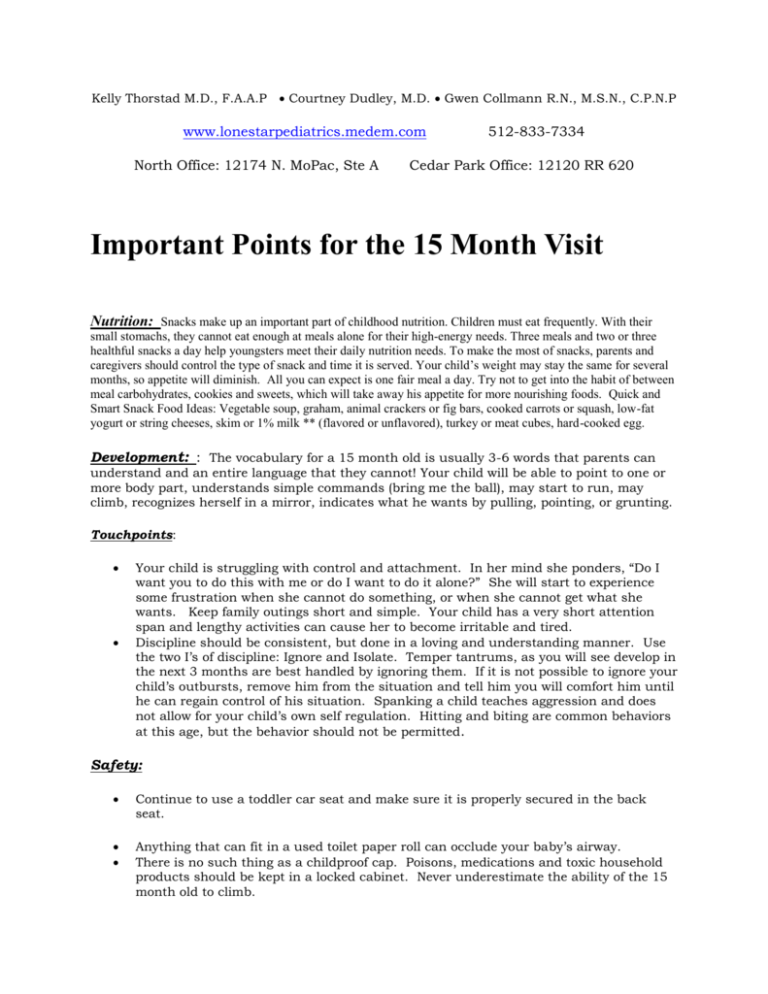
Kelly Thorstad M.D., F.A.A.P Courtney Dudley, M.D. Gwen Collmann R.N., M.S.N., C.P.N.P www.lonestarpediatrics.medem.com North Office: 12174 N. MoPac, Ste A 512-833-7334 Cedar Park Office: 12120 RR 620 Important Points for the 15 Month Visit Nutrition: Snacks make up an important part of childhood nutrition. Children must eat frequently. With their small stomachs, they cannot eat enough at meals alone for their high-energy needs. Three meals and two or three healthful snacks a day help youngsters meet their daily nutrition needs. To make the most of snacks, parents and caregivers should control the type of snack and time it is served. Your child’s weight may stay the same for several months, so appetite will diminish. All you can expect is one fair meal a day. Try not to get into the habit of between meal carbohydrates, cookies and sweets, which will take away his appetite for more nourishing foods. Quick and Smart Snack Food Ideas: Vegetable soup, graham, animal crackers or fig bars, cooked carrots or squash, low-fat yogurt or string cheeses, skim or 1% milk ** (flavored or unflavored), turkey or meat cubes, hard-cooked egg. Development: : The vocabulary for a 15 month old is usually 3-6 words that parents can understand and an entire language that they cannot! Your child will be able to point to one or more body part, understands simple commands (bring me the ball), may start to run, may climb, recognizes herself in a mirror, indicates what he wants by pulling, pointing, or grunting. Touchpoints: Your child is struggling with control and attachment. In her mind she ponders, “Do I want you to do this with me or do I want to do it alone?” She will start to experience some frustration when she cannot do something, or when she cannot get what she wants. Keep family outings short and simple. Your child has a very short attention span and lengthy activities can cause her to become irritable and tired. Discipline should be consistent, but done in a loving and understanding manner. Use the two I’s of discipline: Ignore and Isolate. Temper tantrums, as you will see develop in the next 3 months are best handled by ignoring them. If it is not possible to ignore your child’s outbursts, remove him from the situation and tell him you will comfort him until he can regain control of his situation. Spanking a child teaches aggression and does not allow for your child’s own self regulation. Hitting and biting are common behaviors at this age, but the behavior should not be permitted. Safety: Continue to use a toddler car seat and make sure it is properly secured in the back seat. Anything that can fit in a used toilet paper roll can occlude your baby’s airway. There is no such thing as a childproof cap. Poisons, medications and toxic household products should be kept in a locked cabinet. Never underestimate the ability of the 15 month old to climb. Always use sunscreen when your child goes out to play. Avoid going outside between 10:00 a.m. and 3:00 p.m. when the sun’s UV rays are most dangerous. If guns are in your house, lock the guns and ammunition separately, and hide the keys where your child cannot reach them. Kids need to understand that guns are not toys and learn how to behave around them. Always empty buckets, tubs or small pools immediately after use. Install smoke and carbon monoxide detectors and check that they work properly every month. Keep the baby’s environment free of smoke: no smoking in the home or car. Keep your toddler away from moving machinery, lawn mowers, overhead garage doors, driveways and streets. What to expect during this visit: Your child will receive the following immunizations: Trihibit (Dtap and Hib), and a measurement of his hemoglobin level if not exclusively breastfed during the first year of your baby’s life. Your child may run a fever and be irritable for 24-48 hours after getting the shots. Please refer to the “After the Shots” handout for specific instructions. We will discuss your baby’s growth and development and any other concerns that you may have. Please prepare and bring in questions for your next visit at 18 months .
